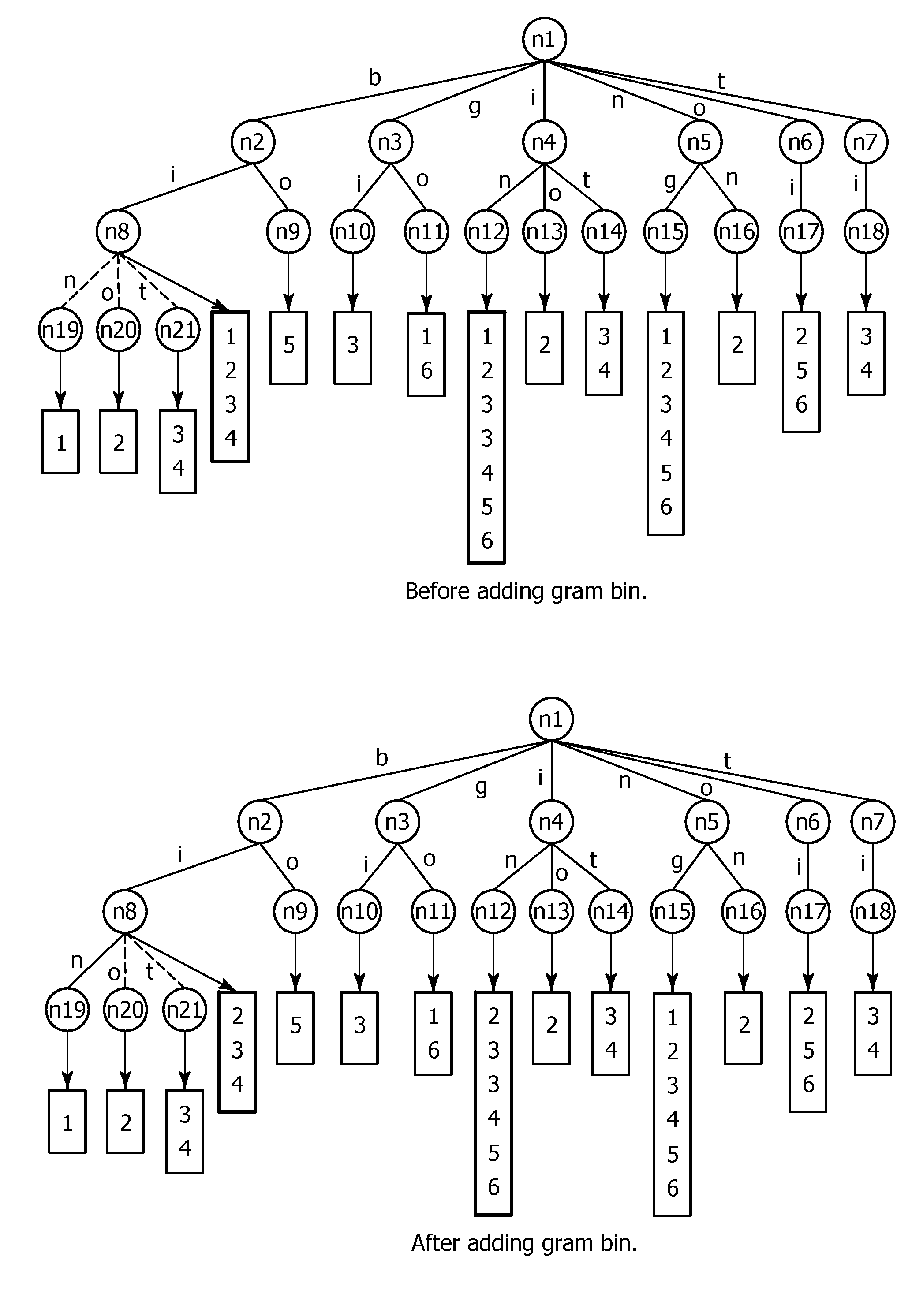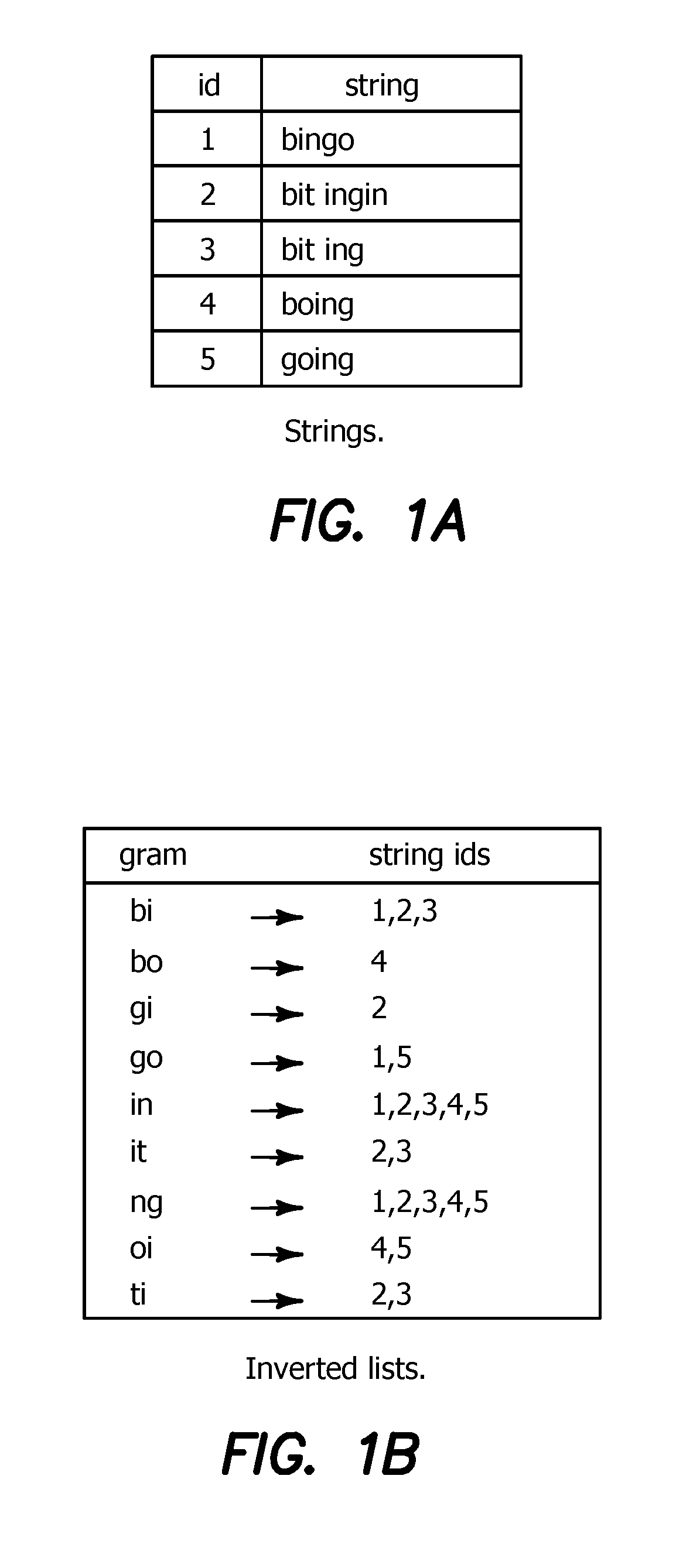Method and apparatus for improving performance of approximate string queries using variable length high-quality grams
- Summary
- Abstract
- Description
- Claims
- Application Information
AI Technical Summary
Benefits of technology
Problems solved by technology
Method used
Image
Examples
example 1
[0157]We use FIGS. 24a and 24b to show one iteration in the algorithm. FIG. 24a shows a trie for the six strings in FIG. 22a. For simplicity, we only draw the local lists for the grams. So far we have processed all the grams of length qmin=2. Now we consider expanding the node n8, which corresponds to the gram bi. We generate its three children corresponding to the extended grams bin, bio, and bit, by scanning the strings on the complete list of bi, which is the same as its local list so far: . For each of the children, we compute their complete and (identical) local lists by scanning the complete list of n8, and identifying the substrings corresponding to this new gram. At this stage, we do not change the local list of n8 yet, since we have not decided whether some of the extended grams will be added. Suppose by running the function Evaluate( ) we decide to add the gram bin to the dictionary. In this case, we modify the local list of node n8 and the local list of gram in (node n12)...
PUM
 Login to View More
Login to View More Abstract
Description
Claims
Application Information
 Login to View More
Login to View More - R&D
- Intellectual Property
- Life Sciences
- Materials
- Tech Scout
- Unparalleled Data Quality
- Higher Quality Content
- 60% Fewer Hallucinations
Browse by: Latest US Patents, China's latest patents, Technical Efficacy Thesaurus, Application Domain, Technology Topic, Popular Technical Reports.
© 2025 PatSnap. All rights reserved.Legal|Privacy policy|Modern Slavery Act Transparency Statement|Sitemap|About US| Contact US: help@patsnap.com



